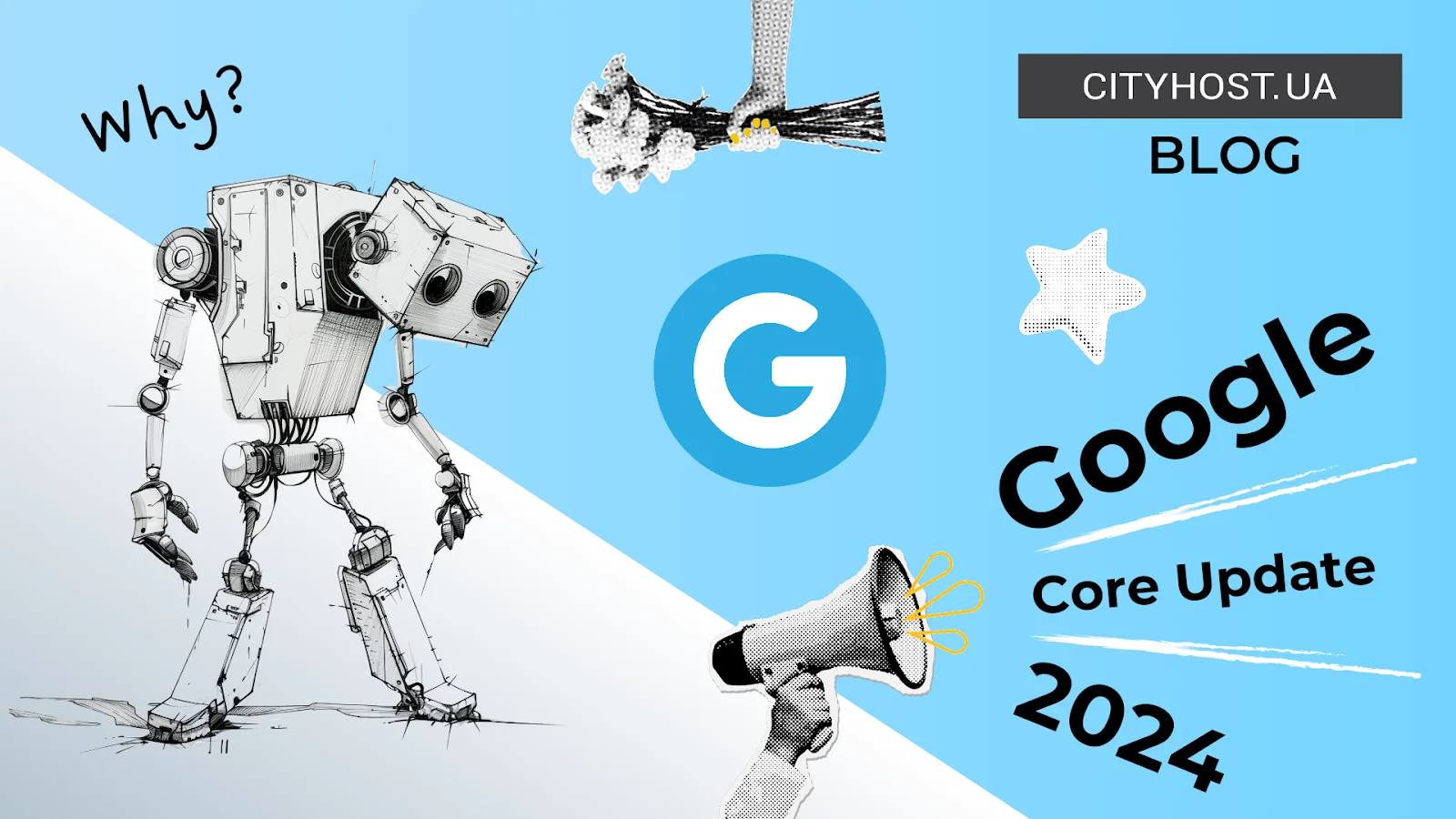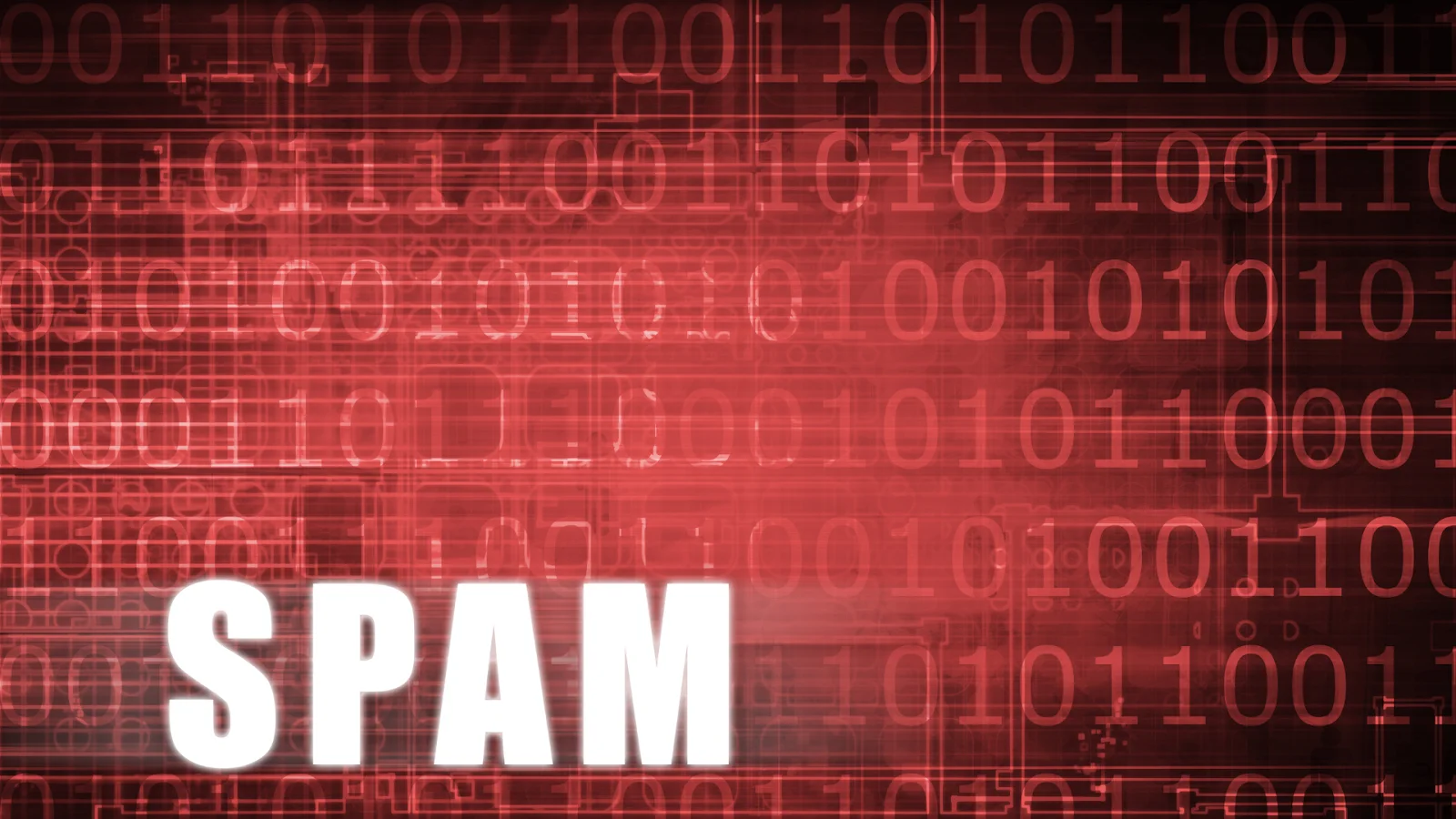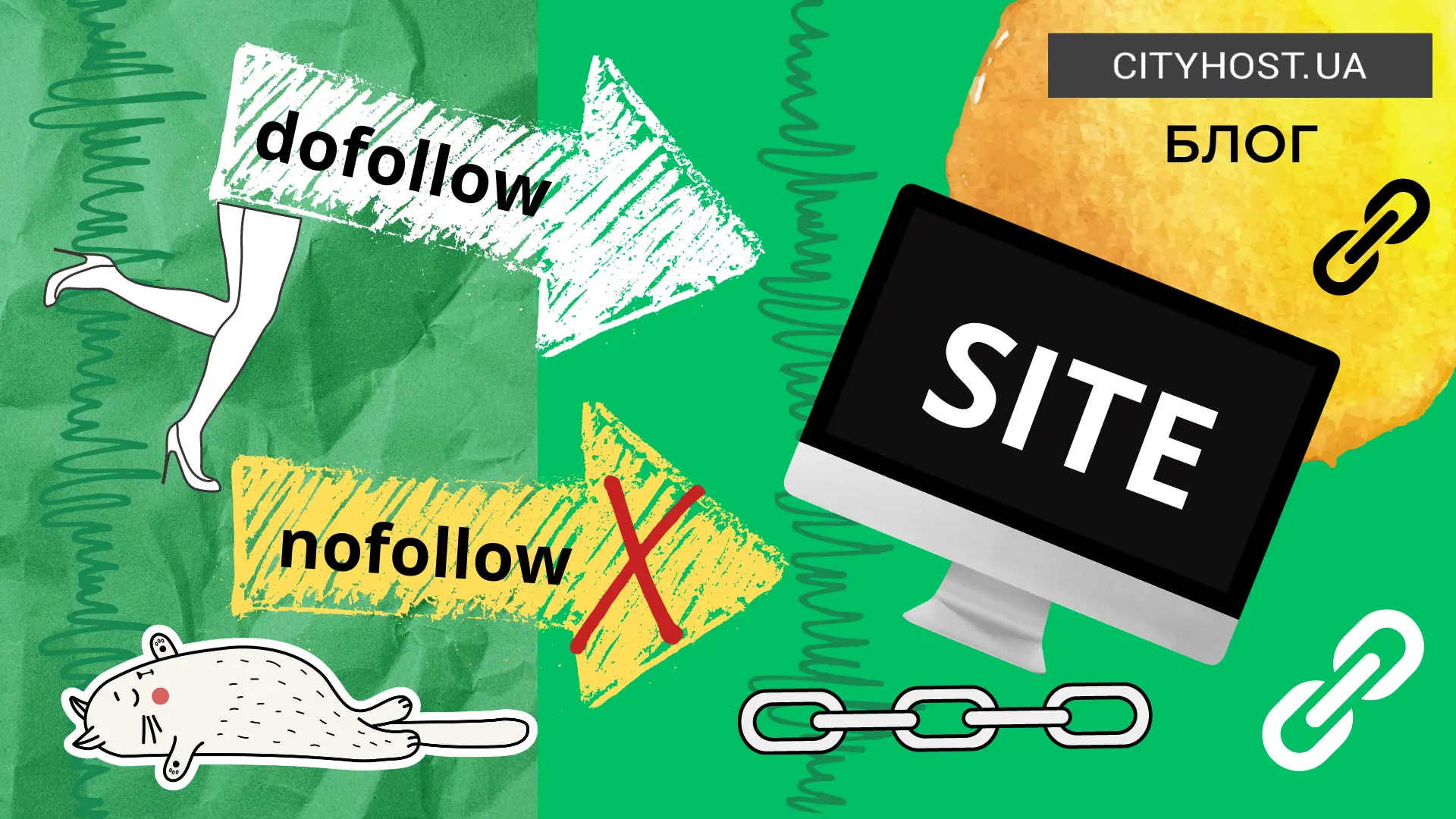
- Google Updates: key changes for website owners
- What rules should be followed to avoid being penalized by Google
- Other Google product updates
In early March, Google rolled out a global core update that will significantly impact the future ranking policy of websites.
The Google updates launched in March 2024 are primarily aimed at improving algorithms, resulting in less spammy, unoriginal, and useless content in search results. Updates will be implemented until May, so webmasters still have time to align their sites with Google's new rules.
As stated in the company's blog article, the current updates are the largest in recent times and are expected to reduce spam in search results by 40%.
Read also: How hosting affects the ranking and promotion of the site
Google Updates: key changes for website owners
This time, the main focus of the improvements is on combating a large volume of content created for search engine manipulation, low-quality content from third-party sources, and the repurposing of expired domains. Let's discuss this in more detail.
Content optimization dealing with content generated in large quantities for manipulating search results
The main focus of the penalties will be on low-quality, mass-generated content, regardless of the methods used to create it (AI, handwritten, or combined), as it is the main tool for manipulating search results and abuses user trust.
Language models like ChatGPT are guilty of creating texts that contain unverified and fictional information. That's why AI-generated content will be the first to be targeted. However, the mere fact of artificially created content will not necessarily lead to optimization, as one might think. The reason is rather the opposite — mass-generated AI content almost always has low quality and lacks fact-checking.
Google representatives note that there is a lot of text on the internet created specifically for popular keyword queries. They promise readers answers, but in reality, they do not provide them, existing only to improve search rankings. These texts are deceitful and disrespectful to readers and will be downgraded in ranking or removed from the index.
The new spam filtering principles will help reduce the number of sites in search results that are filled with a large amount of low-quality information or texts that have no value or even harm consumers.
Low-quality advertising materials and non-targeted source links will be considered as spam
It happens that as part of cooperation, sites with their own high-quality content publish low-quality materials from partners — for example, these can be articles obtained through outreach, paid article placement for obtaining a link, reviews, or comments.
Thus, advertisers or partners may try to use the high domain rating of a site to promote their information. But from now on, such manipulations will be more strictly punished by Google.

Now, any low-value, non-unique, and low-quality content obtained from third parties will be considered by search engine robots as spam equivalent. It will be seen as created solely to boost rankings and not carefully vetted by site owners.
Google will also classify outbound links that are irrelevant to the theme as spam.
In conclusion, it can be said that this update will primarily affect sites created solely for selling links and posting advertising articles.
Google will pay attention to changes in the thematic focus of expired domains
Website owners buy expired domains to improve SEO, which is considered a normal practice. However, often on a domain that previously hosted a high-quality trusted site, a new resource is created with a new theme and low-quality content. This is an attempt to manipulate search algorithms and promote low-value content to the top of the search results.
The search engine responds positively to old domains, but to prevent manipulation, from now on, significant importance will be given to the consistent preservation of content themes. For example, if you buy an old expired domain that used to host a beauty-related site and reconfigure it for a gaming site, Google will react negatively to the change in theme and may penalize such a domain.

What rules should be followed to avoid being penalized by Google
Getting penalized is not difficult, but lifting the penalties requires a lot of time and effort. Therefore, it is important to keep up with updates, read information about Google's policies, and follow their advice.
Google updates will only take effect in May, but they are introduced gradually from the moment they are announced, so carefully check the status of your site. Sudden changes in traffic will indicate that your site is already under penalties. But there is still time to fix it.
Here are some recommendations to follow to ensure that Google updates in 2024 do not harm your site.
Avoid methods of creating content that lead to a deterioration in quality
Some ways of creating content themselves do not promise anything good. For example, this is mass automated generation or ordering large volumes of text from copywriters at very low rates and suspiciously quick order fulfillment. Such materials will guaranteedly have poor quality, and Google will view them as spam.
Articles should be written not for SEO, but for people, be literate, interesting, and easy to read, answering the user's intent.
Yes, this will be more expensive, but saving the site and returning it to its previous positions in Google search results will cost much more.
It is possible that your site already has such content — it should be removed or replaced.
Pay close attention to content from external sources
Unfortunately, advertisers or partners do not always take responsibility for the articles they submit for publication, especially when it comes to just getting a link.
External materials may not be unique enough or may contain false advice.
Each such article needs to be carefully proofread, fact-checked, and run through a plagiarism checking service. It is also important that guest posts do not contradict the main theme of the site.
By the way, you can also check partner or commissioned articles for artificial generation – there are several detectors for this. For example, AI Content Detector correctly identified texts created by both humans and artificial intelligence.
Also, constantly monitor the appearance of spammy links and comments on your site. All of this needs to be promptly removed.
Check the theme of the old domain before buying
Do not use domains that have been resold and have changed their thematic focus for promotion.
If you plan to buy an old domain, find out beforehand what was posted on it before. To do this, you can use the Wayback Machine service. Look for domains that will match the chosen theme.
It is desirable that the match concerns not only the theme but also the direction of the site – for example, in the place of an online store, it is better to create a similar platform for online trading, rather than an informational resource.
Read also: Drop domains: how to buy a domain with a good history and why you need it
All the above advice pertains to the new policy that will come into effect alongside the full deployment of the March updates. Of course, they do not negate the classic rules of SEO: Google consistently and logically follows its mission to provide users with only high-quality, useful, and interesting content. So, if your site is built on these principles and does not use manipulative practices, there is no need to fear changes.
You can read more about this in the article Top 10 SEO and Link Building Tips for 2023, the information from which is still relevant.
Other Google product updates
Alongside the Google Core Update 2024, the company announced updates to Google Chrome, which will enable real-time analysis of phishing links. This update will be available by the end of March.
In its blog, Google talks about the impact of these updates on user security.
Previously, the browser tracked phishing links, but it did so once every half hour or hour. Google Chrome has a database of dangerous sites that the system checks against and sends warnings to users if a match is found.
However, cybercriminals have learned to exploit this window and create sites that exist for less than half an hour. This vulnerability is now supposed to be addressed by the new approach to link checking, which will happen continuously.
Read also: Phishing — how not to fall for the tricks of fraudsters and recognize a fake site
Google also will announce an update to the Manifest V3 support protocol in the Chrome browser in June. This means that most ad blockers will stop working, as they are compatible with the previous version, Manifest V2, and do not support the new one.
In 2024, Google is actively funding updates and announcing many changes. Among them is an update to the Google Ads advertising service and the abandonment of third-party cookies.
The main change that advertisers are eagerly awaiting is the integration of artificial intelligence Gemini into Google Ads and the automation of all processes.
This means that campaigns will now be formed not manually, but based on data entered into the dashboard.
Whether this will make the work easier or more difficult remains to be seen after the changes are implemented.
All the updates we mentioned could significantly change SEO, advertising approaches, website security, and user experience. In theory, we are on the verge of a major transformation with Google — let's see what happens next.










